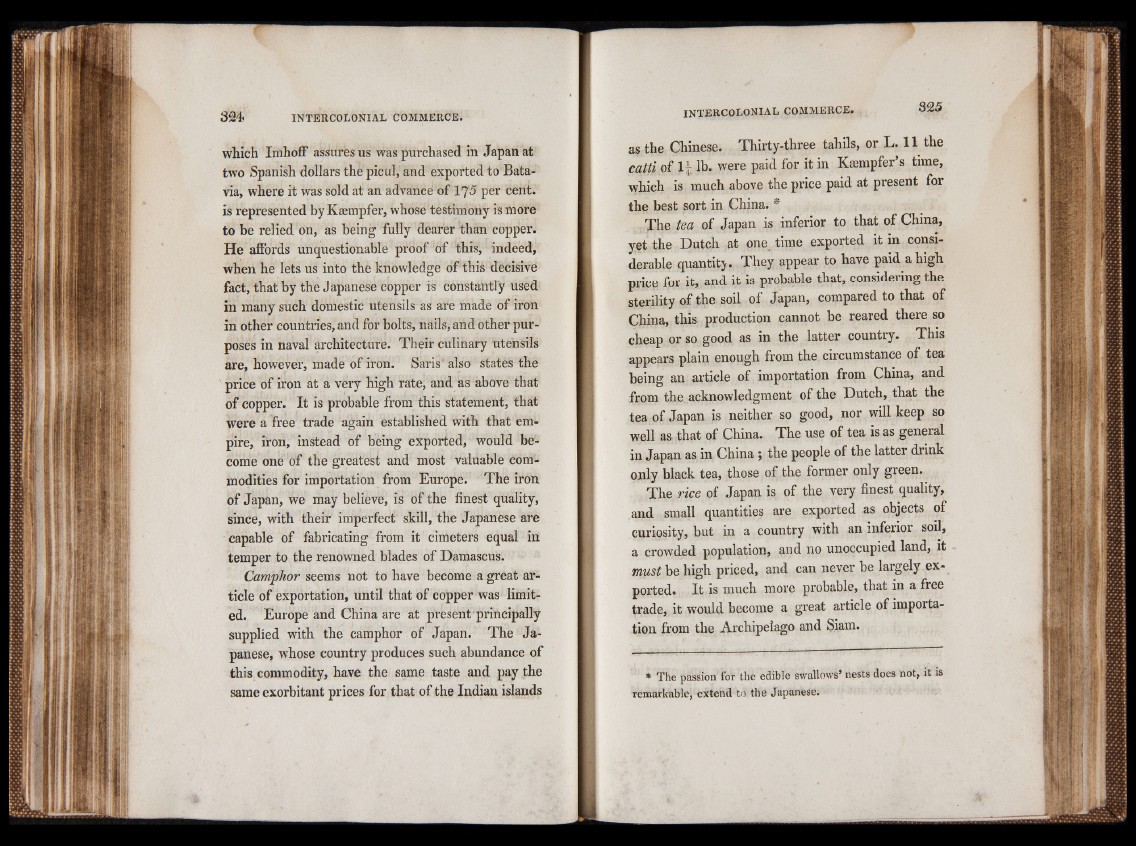
which Imhoff assurés us was purchased in Japan at
two Spanish dollars the picul, and exported to Batavia,
where it was sold at an advance of 175 per cent,
is represented by Kæmpfer, whose testimony is more
to be relied on, as being fully dearer than copper.
He affords unquestionable proof of this, indeed,
when he lets us into the knowledge of this decisive
fact, that by the Japanese copper is constantly used
in many such domestic utensils as are made of iron
in other countries, and for bolts, nails, and other purposes
in naval architecture. Their culinary utensils
are, however, made of iron. Saris'also states the
price of iron at a very high rate, and as above that
of copper. It is probable from this statement, that
were a free trade again established with that empire,
iron, instead of being exported, would be1-
come one of the greatest and most valuable commodities
for importation from Europe. The iron
of Japan, we may believe, is of the finest quality,
since, with their imperfect skill, the Japanese are
capable of fabricating from it cimeters equal in
temper to the renowned blades of Damascus.
Camphor seems not to have become a great article
of exportation, until that of copper was limited.
Europe and China are at present principally
supplied with the camphor of Japan. The Japanese,
whose country produces such abundance of
this commodity, have the same taste and pay the
same exorbitant prices for that of the Indian islands
as the Chinese. Thirty-three taliils, or L. 11 the
catti of If lb. were paid for it in Kaempfer’s time,
which is much above the price paid at present for
the best sort in China. *
The tea of Japan is inferior to that of China,
yet the Dutch at one time exported it in considerable
quantity. They appear to have paid a high
price for it, and it is probable that, considering the
sterility of the soil of Japan, compared to that of
China, this production cannot be reared there so
cheap or so good as in the latter country. This
appears plain enough from the circumstance of tea
being an article of importation from China, and
from the. acknowledgment of the Dutch, that the
tea of Japan is neither so good, nor will keep so
well as that of China. The use of tea is as general
in Japan as in China ", the people of the latter drink
only black tea, those of the former only green.
The rice of Japan is of the very finest quality,
and small quantities are exported as objects of
curiosity, but in a country with an inferior soil,
a crowded population, and no unoccupied land, it
must be high priced, and can never be largely exported.
It is much more probable, that in a free
trade, it would become a great article of importation
from the Archipelago and Siam.
* The passion for the edible swallows’ nests does not, it is
remarkable, extend to the Japanese.